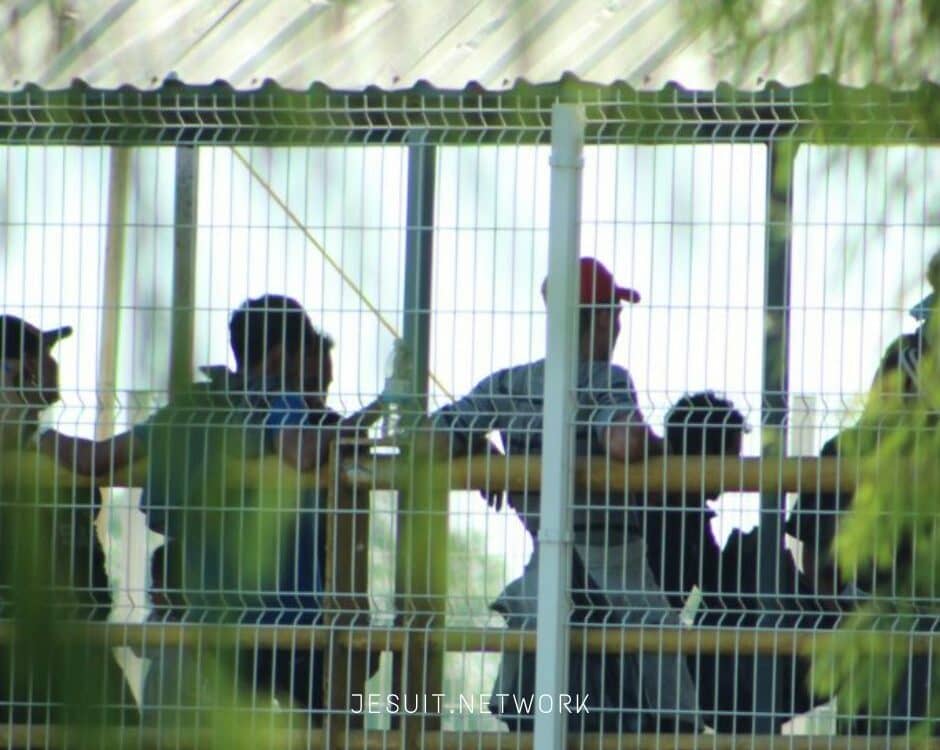Este sitio web utiliza cookies para que podamos ofrecerle la mejor experiencia de usuario posible. La información sobre cookies se almacena en su navegador y realiza funciones como reconocerle cuando vuelve a nuestro sitio web y ayudar a nuestro equipo a comprender qué secciones del sitio web le resultan más interesantes y útiles.
It is time to foster a culture of hospitality to fight hostility against refugees and migrants
A few weeks ago we woke up startled with the news of the decree of President Trump that indefinitely prohibited the entry of Syrian people in USA, and suspended for 120 days the entry of people from seven countries, majority Muslim countries and other refugee resettlement programs.
The decree questioned the right to asylum and the international protection. Many different organizations considered it deeply discriminatory. It also caused great confusion and uncertainty: officers who did not know how to apply this order or how it was supposed to work, there was chaos and pain, many families were separated, there were students who were abroad and could not go back to college in the USA and more than 60,000 people got their visas cancelled.
International Solidarity with the Refugees
The reaction of US civil society and the international community did not wait. It was amazing to see thousands of people mobilizing at airports: there were lawyers offering legal advice to refugees and migrants, multiple communiqués of political and religious leaders, representatives of international organizations, individuals and organizations from all around the world showing their indignation and their solidarity. The Jesuit Provincial Conferences of USA and Canada and México, as well as of Latin America (CEPAL) immediately voiced their concern and discomfort with the decree. JRS USA and Ignatian Solidarity Network launched diverse advocacy activities and the Jesuit universities showed their worries and their objection to this order.
People stood up in solidarity with refugees and also became fully aware that this order questioned the basic values and the characteristics of the American dream: to be a hosting country made up by migrants, a country of freedoms and opportunities for all. Fortunately, a federal judge suspended the application of the order, and also the second order issued some days ago.
Increasing hostility in Europe towards refugees
Meanwhile, in Europe people threw their hands up in horror because of Trump’s order, however, there is a growing hostility in Europe towards migrants and refugees that translates in more and more restrictive policies. According to Frontex, around 380,000 people arrived to Europe during 2016, compared to over one million in 2015
The agreement between Turkey and the European Union was a turning point, prioritizing, very clearly the control of borders over the protection and the hosting of refugees and migrants. The EU would externalize its borders and offer funds and advantages in the negotiations during the accession process from Turkey to the EU, in exchange of a stronger control of the borders and of the acceptance of returned refugees and migrants, thus violating their fundamental rights
Since then, the flows of people from Turkey to Greece have declined drastically, but also the deaths in the Mediterranean Sea increased from 3,771 people in 2015 to 5,000 people in 2016, as people searched longer and more dangerous routes to Europe. During 2016, the arrivals to Italy from Libya increased by 17%.
In Greece, the so-called hotspots have been transformed into detention camps, from which people are deported. There are around 60,000 people in Greece: they live in deplorable conditions and there are no signs of early solutions, because the European states are not fulfilling their relocation quotas. Immediate returns take place in Ceuta and Melilla, in spite of the complaints of international and social organizations. In Europe, JRS Europe, and in Spain, different Jesuit organizations built around the campaign Hospitalidad, carry out numerous actions that support migrants and refugees.
Increased xenophobia in Europe
The upcoming elections in France, Greece or Germany can end up with representatives who would be increasingly hostile towards refugees and migrants. In fact, refugees and migrants are being used during the electoral campaigns as scapegoats for the discomfort caused by the economic crisis, the impoverishment of the European society and the growing inequality.
Political leaders- as well as media leaders- have an influence on public opinion so that post-truths, myths, or criminalization of refugees are at risk of a false appearance of reality. Likewise, extreme social trends surround and give more popularity to nationalist and xenophobic leaders, creating a spiral of hostility and of xenophobia. This mainly affects refugees and migrants, increasingly violated in their rights, watched with increasing hostility. But not just them.
To promote a culture of hospitality
It is urgent to realize, as thousands of people who have mobilized in the United States, that this type of measures attack deep values, confront and divide societies and endanger social cohesion. To fight against this hostility culture, we should install a hospitality culture that gives protection to refugees and migrants; a culture that welcomes them and that protects their basic rights.
Instead of speeches that dehumanize and that show the refugees as criminals, we should give and share a positive narrative that shows their lives’ history, their ability to face adversity and their economic and cultural contributions to the hosting societies.
In one and the other side of the Atlantic, our own identity and values of compassion, justice, tolerance and respect for human rights are at risk. Jesuit organizations have been involved for many years in human mobility, but this issue has nowadays become really important in society and included in the public agendas. We need to join forces and to act together globally to scale up our actions and impact in favour of refugees and migrants.
This is an adapted version for Jesuit Networking of the article in Spanish published in EuroEfe Euractiv





